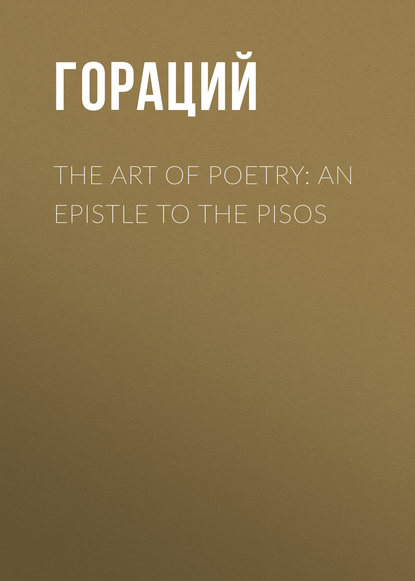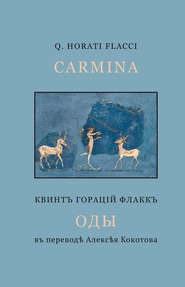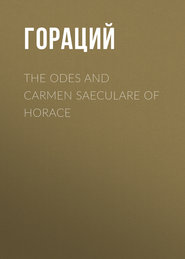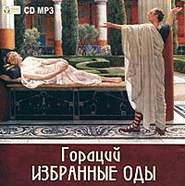По всем вопросам обращайтесь на: info@litportal.ru
(©) 2003-2024.
✖
The Art of Poetry: an Epistle to the Pisos
Настройки чтения
Размер шрифта
Высота строк
Поля
Chacun peint avec art dans ce nouveau miroir,
S'y vit avec plaisir, ou crut ne s'y point voir.
L'Avare des premiers rit du tableau fidele
D'un Avare, souvent tracé sur son modéle;
Et mille fois un Fat, finement exprimé,
Méconnut le portrait, sur lui-méme formé.
BOILEAU, L'Art Poet. ch. iii.
"Nothing in the art requires more attention and judgment, or more of that power of discrimination, which may not improperly be called Genius, than the steering between general ideas and individuality; for tho' the body of the whole must certainly be composed by the first, in order to communicate a character of grandeur to the whole, yet a dash of the latter is sometimes necessary to give an interest. An individual model, copied with scrupulous exactness, makes a mean stile like the Dutch; and the neglect of an actual model, and the method of proceeding solely from idea, has a tendency to make the Painter degenerate into a mannerist.
"It is necessary to keep the mind in repair, to replace and refreshen those impressions of nature, which are continually wearing away.
"A circumstance mentioned in the life of Guido, is well worth the attention of Artists: He was asked from whence he borrowed his idea of beauty, which is acknowledged superior to that of every other Painter; he said he would shew all the models he used, and ordered a common Porter to sit before him, from whom he drew a beautiful countenance; this was intended by Guido as an exaggeration of his conduct; but his intention was to shew that he thought it necessary to have some model of nature before you, however you deviate from it, and correct it from the idea which you have formed in your mind of perfect beauty.
"In Painting it is far better to have a model even to depart from, than to have nothing fixed and certain to determine the idea: There is something then to proceed on, something to be corrected; so that even supposing that no part is taken, the model has still been not without use.
"Such habits of intercourse with nature, will at least create that variety which will prevent any one's prognosticating what manner of work is to be produced, on knowing the subject, which is the most disagreeable character an Artist can have."
Sir Joshua Reynolds's Notes on Fresnoy.
480.—ALBIN'S HOPEFUL.] Filius ALBINI
Albinus was said to be a rich Usurer. All that is necessary to explain this passage to the English reader, is to observe, that the Roman Pound consisted of Twelve Ounces.
487.—_Worthy the _Cedar and the Cypress.]
The antients, for the better preservation of their manuscripts, rubbed them with the juice of Cedar, and kept them in cases of Cypress.
496.—Shall Lamia in our sight her sons devour,
and give them back alive the self-same hour?]
Neu pranse Lamiae vivum puerum extrabat alvo.
Alluding most probably to some Drama of the time, exhibiting so monstrous and horrible an incident.
503.—The Sosii] Roman booksellers.
523.—Chaerilus.] A wretched poet, who celebrated the actions, and was distinguished by the patronage, of Alexander.
527.—If Homer seem to nod, or chance to dream.]
It may not be disagreeable to the reader to see what two poets of our own country have said on this subject.
—foul descriptions are offensive still,
either for being like, or being ill.
For who, without a qualm, hath ever look'd
on holy garbage, tho' by Homer cook'd?
Whose railing heroes, and whose wounded Gods,
make some suspect he snores, as well as nods.
But I offend—Virgil begins to frown,
And Horace looks with indignation down:
My blushing Muse with conscious fear retires,
and whom they like, implicitly admires.
—Roscommon's Essay on Translated Verse.
A prudent chief not always must display
Her pow'rs in equal ranks, and fair array:
But with th' occasion and the place comply,
Conceal his force, nay seem sometimes to fly.
Those oft are stratagems, which errors seem,
Nor is it Homer nods, but we that dream.
POPE'S Essay on Criticism.
530.—POEMS AND PICTURES ARE ADJUDC'D ALIKE.]
Ut pictura poesis.
Here ends, in my opinion, the didactick part of this Epistle; and it is remarkable that it concludes, as it begun, with a reference to the Analogy between Poetry and Painting. The arts are indeed congenial, and the same general principles govern both. Artists might collect many useful hints from this Epistle. The Lectures of the President of the Royal Academy are not rarely accommodated to the study of Painters; but Poets may refine their taste, and derive the most valuable instruction, from the perusal of those judicious and elegant discourses.
535.—O THOU, MY PISO'S ELDER HOPE AND PRIDE!]
O MAJOR JUVENUM!
We are now arrived at that portion of the Epistle, which I must confess I am surprised, that any Commentator ever past, without observing the peculiar language and conduct of the Poet. There is a kind of awful affection in his manner, wonderfully calculated to move our feelings and excite our attention. The Didactick and the Epistolary stile were never more happily blended. The Poet assumes the air of a father advising his son, rather than of a teacher instructing his pupils. Many Criticks have thrown out a cursory observation or two, as it were extorted from them by the pointed expressions of the Poet: but none of them, that I have consulted, have attempted to assign any reason, why Horace, having closed his particular precepts, addresses all the remainder of his Epistle, on the nature and expediency of Poetical pursuits, to _the Elder Piso only. I have endeavoured to give the most natural reason for this conduct; a reason which, if I am not deceived, readers the whole of the Epistle interesting, as well as clear and consistent; a reason which I am the more inclined to think substantial, as it confirms in great measure the system of the Author of the English Commentary, only shewing _the reflections on the drama in _this Epistle, as well as in the Epistle to Augustus, to be incidental, rather than the principal subject, and main design, of the Poet,
Jason De Nores, in this instance, as in most others, has paid more attention to his Author, than the rest of the Commentators. His note is as follows.
[O major juvenum!] _Per apostrophen _ad majorem natu __ex pisonibus convertis orationem, reddit rationem quare summum, ac perfectissimum poema esse debeat utitur autem proaemio quasi quodam ad _benevolentiam & attentionem _comparandum sumit autem _benevolentiam à patris & filii laudibus: attentionem_, dum ait, "hoc tibi dictum tolle memor!" quasi dicat, per asseverationem,_firmum _omninò et _verum.
543.—_Boasts not MESSALA'S PLEADINGS, nor is deem'd AULUS IN JURISPRUDENCE.]
The Poet, with great delicacy, throws in a compliment to these distinguished characters of his time, for their several eminence in their profession. Messala is more than once mentioned as the friend and patron of Horace.
562.—Forty thousand sesterces a year.]
The pecuniary qualification for the Equestrian Order. Census equestrem summam nummorum.
565.—Nothing, IN SPITE OF GENIUS, YOU'LL commence]
Tu nihil, invitâ dices faciesve Minervâ.
Horace, says Dacier, here addresses the Elder Piso, as a man of mature years and understanding; and be begins with panegyrick, rather than advice, in order to soften the precepts he is about to lay down to him.
The explication of De Nores is much to the same effect, as well as that of many other Commentators.
567.—But grant you should hereafter write. Si quid tamen olim scripseris.]
"This," says Dacier, "was some time afterwards actually the case, if we may believe the old Scholiast, who writes that _this _PISO composed Tragedies."
Другие электронные книги автора Квинт Гораций Флакк
Другие аудиокниги автора Квинт Гораций Флакк
Избранные оды




 4.67
4.67












